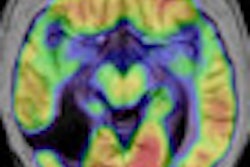Using functional MRI (fMRI), Finnish researchers have found that experiencing strong emotions may help synchronize brain activity among a group of individuals, according to a study published online May 23 in the Proceedings of the National Academy of Sciences.
The results showed that feeling strong, unpleasant emotions synchronized the participants' emotion processing networks in the frontal and midline regions of the brain, the researchers from Aalto University and Turku PET Centre concluded. Highly arousing events, however, synchronized activity in networks supporting vision, attention, and sense of touch.
This synching of brain activity across a group of people could help in understanding each other's intentions and actions, according to the researchers.
In the study, the participants' brain activity was measured with fMRI while they viewed short movies with pleasant, neutral, and unpleasant themes.
The results have major implications for current neural models of human emotions and group behavior, and they also add to the understanding of mental disorders involving abnormal socioemotional processing, said lead study author Lauri Nummenmaa, an adjunct professor at Aalto University.



















